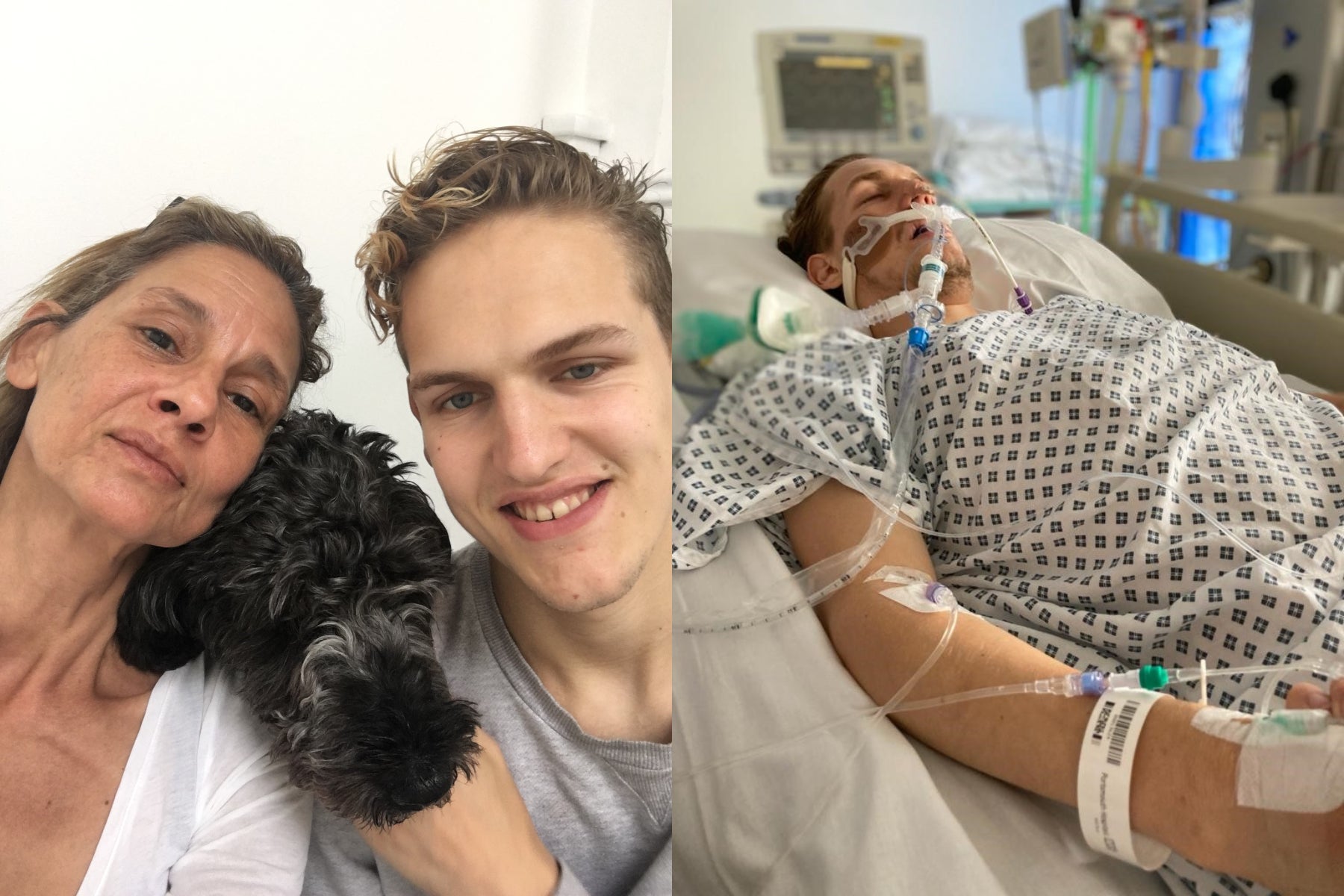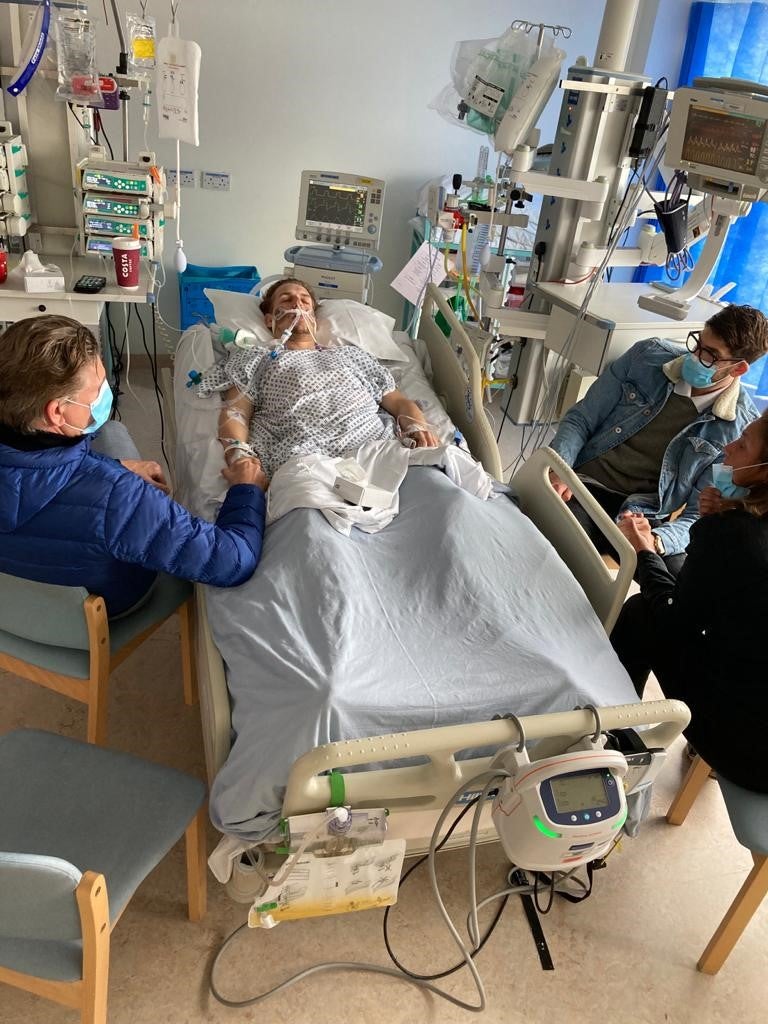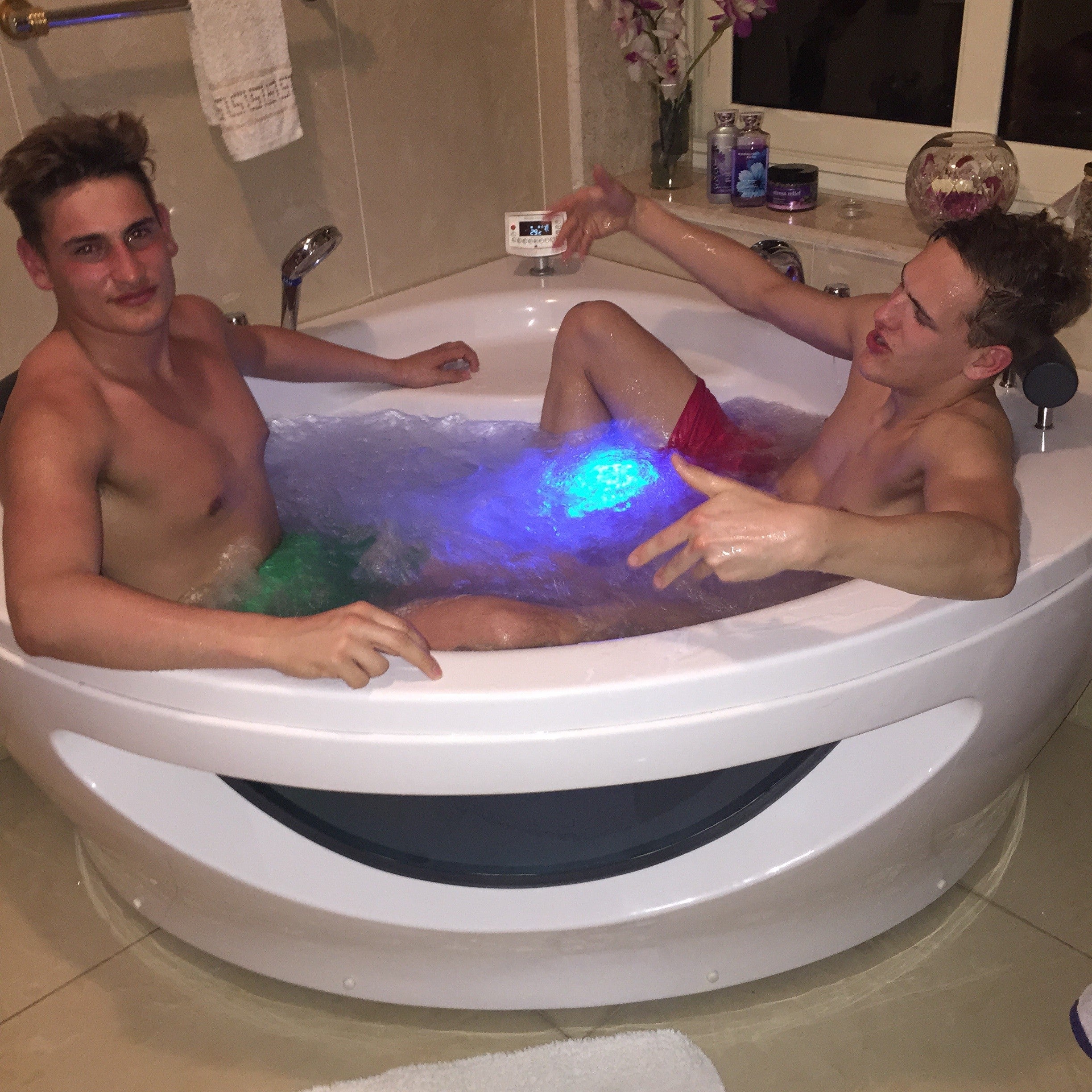Mum’s warning after doctors failed to monitor salt levels of son who died
A coroner ruled that Milo’s premature death was partly due to the ‘gross failure to provide basic care’

A heartbroken mother whose 24-year-old son died after doctors failed to monitor his salt levels has branded his death “avoidable and unforgivable” and is campaigning for the Government to investigate preventable deaths across the UK.
Milo Peart died in Queen Alexandra Hospital in Portsmouth on July 4, 2020, after sodium levels in his blood dropped below normal causing his brain to swell, a condition known as hyponatremia – which doctors had not spotted until it was too late.
Milo’s mother, Gihan El Halwagi, 58, from Soberton, Southampton, watched in horror as her son’s condition deteriorated over 36 hours and his behaviour became increasingly erratic, to the point where Milo did not recognise her and would punch her in the face.
A coroner ruled that Milo’s premature death was partly due to the “gross failure to provide basic care” which amounted to “neglect” and stressed that many opportunities to potentially save his life had been missed.

The mother-of-three is now campaigning to stop “preventable deaths” in hospitals across the UK and has launched a petition on change.org demanding the government intervene.
“Milo’s death should not have happened,” Gihan told PA Real Life.
“It is unforgivable, there is no amount of words that I have, something like that should just never have happened.
“I have had a really tough time since Milo died and if I’m going to be really honest with you, I’ve had personal issues with drinking and not wanting to leave my room.
“My eldest son called me (and) said ‘please, please, please stop, you can’t bring Milo back’. I can’t bring him back, but I can try and stop something like this from happening again.
“That’s when I decided to start the petition.”
When Gihan was pregnant with Milo, an ultrasound showed his bladder was blocked, causing urine to back up and flood his kidneys.
He was born with chronic renal failure at Portland Hospital before being transferred to Great Ormond Street where he spent the next two years receiving medical treatment until doctors deemed him well enough to receive a kidney transplant.
“That was how life started for Milo, it was a very, very difficult few years,” said Gihan.

Milo, one of the youngest patients ever to receive a kidney, recovered quickly and Gihan was given the green light to take him home just 11 days after the operation.
For the next 20 years, Milo lived a “wonderfully healthy and normal life”, playing sports at school and graduating with a first class honours from the Chelsea College of Arts.
He was planning on moving to London after getting several job offers when, in 2019, Milo’s kidney started failing and he was put on dialysis, a treatment to clean the blood, while waiting for another transplant.
In November, Milo received a phone call from Queen Alexandra Hospital to say they had found a match and went on to have a second kidney transplant, thinking he would soon be able to resume life as normal.
But Covid-19 scuppered his plans of moving to London, and during the summer of 2020 his health suddenly took a turn for the worse.
On July 1, Milo spent the afternoon gardening and playing football with his brothers – Atti, 30, and Finn, 27- before having a family dinner with some games.
Gihan went to bed at around 9pm and was sound asleep when Milo suddenly burst into her room a few hours later.
“He woke me up and said, ‘Mum we need to go and fly a kite because of Covid-19’,” explained Gihan.
“I said, ‘Sorry darling, what?’
“He said, ‘we need to go and fly a kite’, so I knew something was completely off.
“He was dripping in sweat and wasn’t coherent.”

Gihan tried to convince Milo to lie down but he was “restless” and wanted to have a shower.
A few moments later, his older brother came into the room and said: “Mum there’s something really wrong with Milo”.
Gihan dialled 999 after calling the renal ward and NHS 111, and being told she needed to contact A&E.
By the time the ambulance arrived Milo was “dysphasic”, meaning he could not understand what people were saying or answer simple questions, which meant that, despite Covid restrictions, Gihan was permitted to accompany him.
He was admitted to the A&E Department at Queen Alexandra Hospital on July 2, where doctors suggested he could be suffering from encephalitis or meningitis and found sodium levels in his blood were 129, lower than expected.
The normal range for blood sodium levels is 135 to 145 milliequivalents per litre (mEq/L).
At around 5am, Gihan was told she could return home as Milo’s condition was stable, and the next morning a doctor called to say he was ready to come home.
Unfortunately this would never happen, as just a few hours later, Gihan received another phone call to say Milo had been found slumped in the toilet completely disorientated.
“This is two hours after a senior kidney specialist told me that my son could be discharged,” she said.
“Before Milo collapsed his sodium levels were 125 and hospital protocol states that at this point a patient should have immediately been taken to ICU, which they did not do.
“And Milo’s not a normal patient, he’s a renal patient for God’s sakes.
“They completely missed it.”
Gihan raced to the hospital but by the time she arrived, Milo had pulled out his IV lines and was running around the ward naked, completely confused and disorientated.
It took three security guards to restrain Milo and take him back to his bed, which Gihan noted had been defecated in, before he was sedated for his own safety and that of other patients.
But what nobody seemed to know was that Milo’s brain was swelling due to a condition called hyponatraemia, which occurs when the concentration of sodium in the blood is abnormally low.
“When I got to the hospital the next morning, Milo was flipping left, right, left, right,” said Gihan.
“He looked at me and punched me twice in the face – he didn’t recognise me.”
“So the last time I spoke with my son, was the evening we had dinner and played a game, I never had a conversation with Milo again,” she added through tears.
Once sedated, Milo was not properly monitored for the next 16 hours, despite evidence his sodium levels were falling.
Gihan said doctors carried out a blood test early on July 3, but were unable to locate the results for several hours, and when they finally did, Milo’s sodium levels were 120.
“It was the first time they mentioned hyponatremia,” she said.
“Had he been sent to ICU, he’d probably still be alive.
“It was a simple case of decreasing his fluids and increasing hypertonic saline – a fluid dissolved in water that contains sodium.”
At around 10am, Gihan left Milo to get a cup of coffee downstairs which she “regrets deeply to this day”.
Milo suffered a heart attack and was transferred to the Intensive Care Unit where doctors raced to raise the amount of sodium in his blood, but it was too late.
He was declared deceased on the morning of July 4, 2020.
An inquest at Winchester Coroner’s Court concluded on June 16, 2023 and found there had been “gross failures amounting to neglect” and many “numerous missed opportunities to diagnose Milo’s hyponatremia”.
Senior Coroner, Mr Christopher Wilkinson, reported based on the evidence, that none of the three primary doctors assessing Milo over the first 12 hours had a full picture, which led to a number of “missed opportunities”.
The report states that over a 16-hour period there was “no systematic or consistent monitoring of Milo’s sodium levels” citing factors including “a lack of recording of the information and effective communication… of that information between departments”.
Mr Wilkinson concluded that the hospital’s “gross failure to provide for a basic provision of care” amounted to “neglect”.
Gihan has now launched a petition on Change.org demanding the Government investigates “preventable deaths occurring in all UK hospitals”.
“I don’t want people thinking it’s justice for Milo because as I say, I can’t bring Milo back,” she said.
“This is about protecting future generations.
“The Government needs to step in.”
Penny Emerit, chief executive at Portsmouth Hospitals University NHS Trust, said, “I would like to say how sorry I am and again offer our heartfelt condolences, on behalf of the Trust, to Milo’s family. We recognise that there are things we should have done differently when it came to the care that Milo received.
“As a Trust, we have taken the time to reflect on our investigation and take action to address the issues raised. This includes further education of our staff in recognising deterioration in patients and how to escalate when there is cause for concern. This is an ongoing programme of work that means families with any concerns can easily communicate these with our critical care outreach team.
“There are no words to change what happened, but I would like to assure Milo’s family and our patients that we continue to learn from Milo’s case and safety remains our top priority.”
Subscribe to Independent Premium to bookmark this article
Want to bookmark your favourite articles and stories to read or reference later? Start your Independent Premium subscription today.

Join our commenting forum
Join thought-provoking conversations, follow other Independent readers and see their replies
Comments